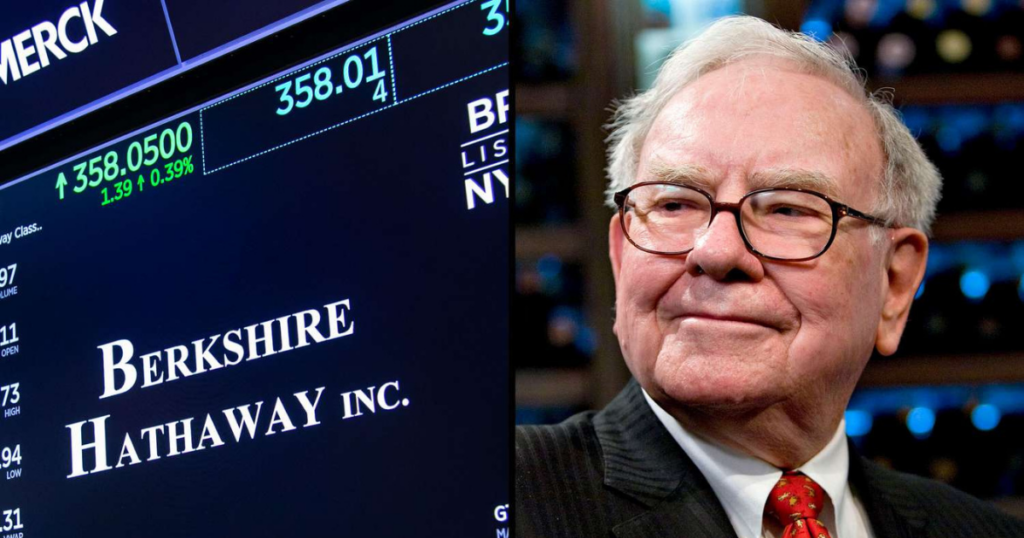BERKSHIRE ANNUAL MEETING COMMENTARY
GETTING USED TO MAKING LESS
Berkshire Hathaway (Berkshire) held its annual meeting on Saturday, May 6th and as is our custom, we’d like to take this opportunity to review the company, its strategy and its prospects going forward. In previous writings, we’ve expressed our admiration for Buffett, both for his track record and his contributions to society but also highlighted the need to set aside such biases when allocating client capital.
Thus far, our primary conclusion has been that size has become a barrier to excess returns, and that Berkshire could lag the S&P 500 for long periods, albeit modestly. Buffett’s tenure has delivered a 3,787,464% cumulative return, so it’s not particularly insightful to say the future may not be as bright as the past. For the taxable investor who holds low basis stock, we believe returns may prove acceptable perhaps with less risk. In other words, Berkshire may have evolved from a ‘get rich stock’ to a ‘stay rich stock’ if conditions remain in its favor.

Every meeting contains an amalgam of timeless wisdom and topical opinion. Rather than repeat Warren Buffett and Charlie Munger’s investing philosophy, we’ll focus on current events and their other comments.
On Cash
Berkshire holds more than $127 billion of cash and U.S. Treasury Bills. We’re in the 6th
year of cash exceeding $100 billion. Despite large buybacks in 2020-2021, cash continues to build and
there doesn’t appear to be a long-term plan to address it. Thanks to prevailing interest rates, holding
cash has become less punitive, but still isn’t earning their cost of capital.

On Competition
There were very thoughtful questions on GEICO losing share to Progressive due to outdated technology and why Burlington Northern Sante Fe (BNSF) continues to trail peers on operating margins. We recognize that both are dealing with atypical circumstances (a spike in used car prices and a freight/labor surge), but so are their competitors. They replied, ‘we’re working on it,’ which we found unsatisfying.
Energy
Between Chevron and Occidental Petroleum, 14% of Berkshire’s portfolio is now in energy. They highlighted the quick rates of production declines in shale drilling but didn’t elaborate on their thinking. A later discussion on government borrowing may imply that they think inflation could remain high. They also revealed that they won’t be making a bid for control of Occidental.
Financials
They addressed a question on how cheap financing led to inflated commercial real estate values and remarked that banks likely made bad loans. They highlighted how bad actors took excessive interest rate risk and that regulation has done a poor job of aligning incentives. It should be noted that Berkshire has exited or is in the process of exiting the majority of its bank holdings save Bank of America.
Turnover
One observation we would make is that the portfolio at Berkshire has had an exceptional amount of turnover, especially for an investor who says his favorite holding period is forever. An audience member questioned their purchase of Taiwan Semiconductor (TSMC) which they exited in a matter of months due to geopolitical risk. An appropriate follow-up may have been why they’re comfortable with Apple who buys the majority of its chips from TSMC and is similarly exposed.
his shortened holding period seems to be a part of a longer trend. Many of the key bank and airline holdings from 2019 are gone including JP Morgan, Goldman Sachs, Bank of New York, Delta Air Lines, Southwest Airlines and United Continental Holdings. Berkshire bought over $9 billion in Verizon Communications in 2020 which they also liquidated. They sold their stake in BYD Co. Ltd. which they had held for over a decade. While 75% of their portfolio remains in just five stocks, Berkshire has struggled to find attractive ideas in the public equity markets and may continue to do so.
We would describe the last decade as one that wasn’t particularly opportunity-rich for Berkshire. The purchase of Apple in 2016 probably did more for their returns than any other decision. Precision Castparts and Kraft Heinz, two of their larger operating company purchases required impairment and have been disappointing. The repurchases of Berkshire stock in 2020 and 2021 were sizable but could have been larger.
Those have been the defining moments of the past decade. Given Berkshire’s size and price discipline, a period of easy credit isn’t their ideal environment. While we don’t wish a recession or credit crunch on anyone, the prospect of Berkshire deploying its excess capital currently looks better to us than recent memory save March of 2020. We believe it’s an extremely defensive security with a great deal of optionality on the capital allocation front. It’s possible the next few years could present some attractive opportunities, but as always, those are difficult to predict.
To value Berkshire, we value the equity portfolio at market and add cash. For the operating businesses, we compare Union Pacific to BNSF and Next Era Energy to Berkshire Hathaway Energy. Because the other segments are more diversified, we use a blended average of other industrial companies for the manufacturing segment and for services we apply a mix of the average services and retail multiples. By our calculations (which are subject to significant judgment), we believe Berkshire is modestly undervalued.
Thank you for your interest in Berkshire Hathaway and if you have any questions, please don’t hesitate to reach out to us at Bridges Trust.
We thank you for your support and if you have any questions, please don’t hesitate to reach out to your Relationship Manager.
Sincerely,
Bridges Trust Investment Committee



